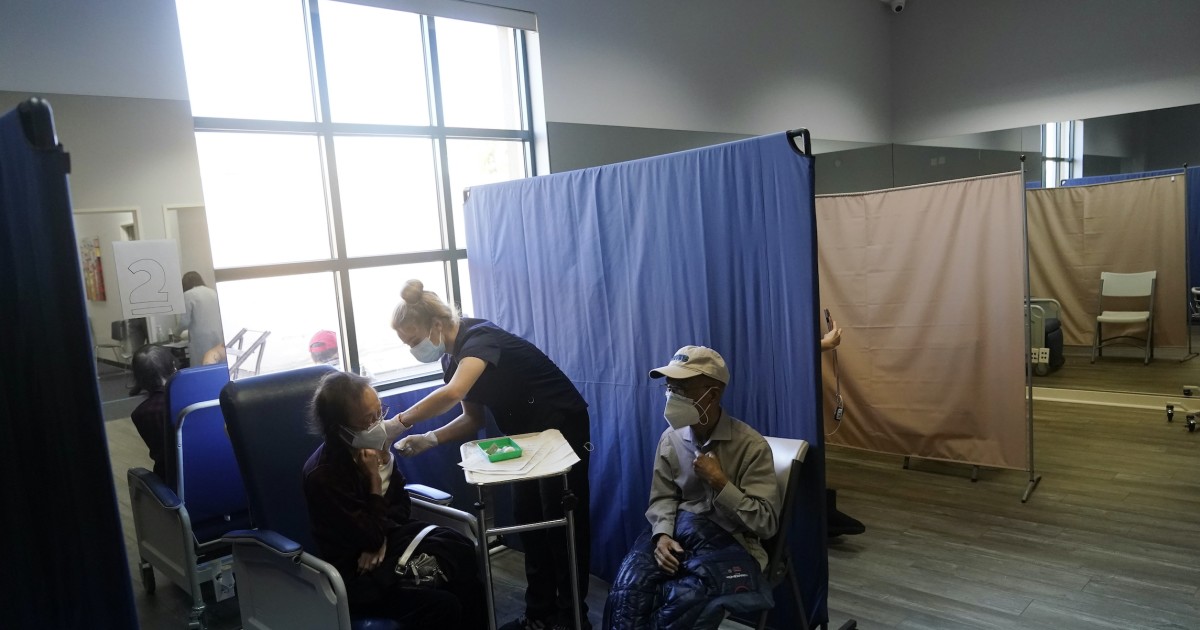
The Biden administration has signaled its willingness to donate extra vaccines to poorer countries with the promise of a surplus in the United States by the summer.
The federal government has purchased more than enough doses of vaccines that have been authorized by the Food and Drug Administration to immunize all 260 million adults in the U.S. In total, that includes 100 million doses of the single-dose Johnson & Johnson vaccine on top of 300 million doses each of the two-shot Pfizer and Moderna vaccines.
The government has also preemptively purchased hundreds of millions of doses of AstraZeneca, Novavax, and Sanofi vaccines, none of which have been authorized for public use in the U.S.
CDC DIRECTOR WARNS OF ‘AVOIDABLE SURGE’ IN PANDEMIC
“This not something that can be stopped by a fence no matter how high you build a fence or a wall. So, we’re not going to be ultimately safe until the world is safe,” President Biden said earlier this month. “We’re going to start off making sure Americans are taken care of first, but we’re then going to try to help the rest of the world.”
Biden has announced plans to donate 2.5 million doses of the AstraZeneca vaccine to Mexico and 1.5 million to Canada, shots that likely won’t be usable in the U.S. until May at the earliest. By that point, the U.S. vaccine stockpile will have exceeded the number of shots necessary to protect all adults with millions left over for when the time comes to vaccinate children under 16.
“We should give away the millions of doses of stockpiled AZ vaccine,” Dr. Ashish Jha, the dean of the Brown University School of Public Health, said on Monday. “By time AZ is authorized by FDA, we’ll have LOTS of vaccines. The time to use AZ here would have been in January. By May, we won’t need it.”
His objective is to make sure U.S. residents get vaccinated first, according to White House press secretary Jen Psaki, who also said Monday that the Biden administration aims to be “part of the global solution” to ending the pandemic.
“We recognize fully that in order to defeat the pandemic globally, the global community needs to be vaccinated,” Psaki said. “But there’s a shortage of supply, at this point, around the world, but also including around the country still.”
Biden also pledged last month to contribute $ 4 billion to COVAX, the global effort to vaccinate people in poor countries. Before the U.S. got involved, Germany was the largest contributor to the initiative led by the Global Alliance for Vaccines and the World Health Organization with a promise of nearly $ 1.1 billion.
Proponents of the Biden administration’s tentative steps toward sharing resources say the U.S. would benefit, given the number of highly transmissible variants circulating globally and contributing to the third wave in Europe.
CLICK HERE TO READ MORE FROM THE WASHINGTON EXAMINER
The wealthiest countries, representing just a fifth of the global adult population, have procured more than half of the world’s vaccine doses, according to the Duke University Global Health Innovation Center.
“The faster that [variants] are allowed to evolve, the longer it’s going to take us to get out of this crisis,” Carolyn Reynolds, a co-founder of the Pandemic Action Network, said Monday. “So, it is in our national interest to be able to get the vaccine out there more widely around the world as soon as possible.”
